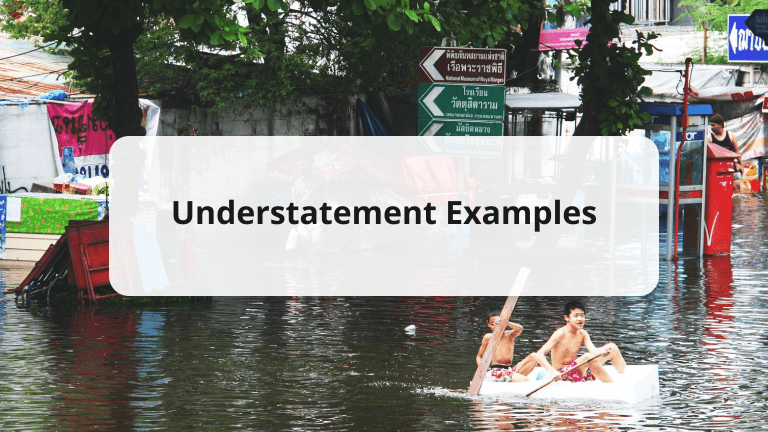What is an understatement example? Riddle me this:
I deliberately describe a situation to make it seem less important than it really is, and I am the opposite of hyperbole, overstatement or exaggeration. What am I? – That’s right! An understatement.
Understatements are often used in songs, poems, novels, and even in everyday conversational English. Understatements are used for many reasons, be it for comedic effects or to create irony. In this article, we’ll be looking at the meaning of an understatement, as well as some understatement examples in literature, poetry, and everyday conversations.
English is a complex language with many strange, and tricky things to learn like, words with multiple meanings, idioms like “Break a Leg” and understatements that are also considered to be quite tricky to learn and understand, especially if you’re not a native English speaker.
In order to learn English speaking, in a way that makes you sound like a native speaker, there are many things to learn and pay attention to, this includes knowing when and how to use an understatement. If you want to learn more advanced English, check out the list of advanced English classes.
Now without further ado, let’s look at understatements, what they mean, types of understatement, and some understatement examples:
Understatement Definition
An understatement is the deliberate description of a situation to make it seem less important than it is in reality. Understatements help develop other figures of speech, like sarcasm or irony in literature.
Example sentence of daily usage of an understatement
- “It rained a bit more than usual” – When describing an area flooded by heavy rainfall
- “It’s a bit nippy outside, today” – When describing temperatures that are 5 degrees below freezing
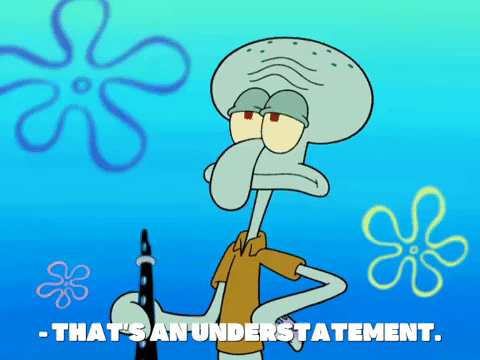
Types of Understatements
a. Comedic Understatement
A comedic understatement is used to add humor, to an otherwise serious situation. For example, if there’s a hurricane at your vacation home, and there’s most likely severe damage to the property, you say: “at least the plants are getting watered.”
b. Modest Understatement
A modest understatement is used instead of bragging or boasting about your achievements. For example, if you get the best score on a math test, and you say: “It is no big deal” when in fact, it is a big deal.
c. Polite Understatement
Polite understatements are used when you might disagree with someone’s opinion, but you want to remain polite. For example, if you’re talking about politics with a friend, and you two are on completely opposite sides, you say: “I think our opinions differ slightly, on this matter.”
d. Ironic & Non-Ironic Understatement
An ironic understatement is a statement whose very objective is a mockery, it is also called a comedic understatement, it comprises verbal irony, where the literal meaning is not what the speaker says, but what they intend.
In non-ironic understatements, the literal meanings are a fact being presented without any pretensions or any form of irony or mockery.
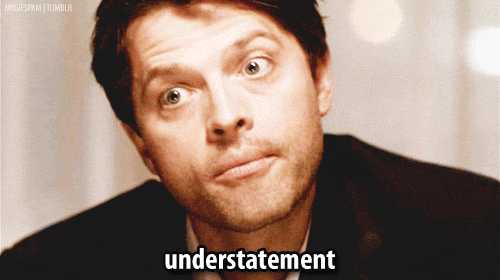
Difference Between Understatement and Other Similar Terms
a. Hyperbole
Although hyperbole and understatement might have similar functions, they differ quite a bit in meaning. Hyperbole is an exaggeration of the actual fact, whereas an understatement is always less than or downplays, the actual fact.
b. Anticlimax
An understatement belittles things with or without the use of irony, and an anticlimax brings down expectations, after having heightened them to a point where the sudden bringing down of expectations, causes great disappointment.
c. Litotes
Litotes is a figure of speech and form of understatement, in which a sentiment is expressed ironically by negating its contrary, like saying “it’s not the best weather today” during a hurricane. And an understatement is a figure of speech in which a situation is described in a way that makes it seem less serious, or important than it actually is.
Understatement Examples
a. Everyday usage
There are many understatement examples that get used quite often in conversations, let’s look at a few of these examples:
- When talking to your friends about the Atlantic ocean, you say: “There’s some water in the Atlantic ocean” – This is an understatement because the word “some” doesn’t even come close to describing the billions of gallons of water in the Atlantic ocean.
- While out camping with your family, it starts to rain heavily, and you say: “This storm brings us a bit of rain” – This is an understatement used to understate just how much it is actually raining.
- You scratch the whole side of your car one night, and when you tell your friends about it you say: ”It’s only a small scratch. Barely noticeable”
b. Pop culture
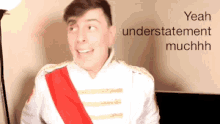
Understatements are often used in pop culture too, it aids in creating irony and sarcasm, and it also helps develop other figures of speech that makes certain situations more relatable or funny. Here’s a list of some understatement examples in pop culture:
- In a scene from Monty Python’s The Holy Grail, a knight is injured and uses understatements to minimize the severity of the injuries: When the knight’s arm is cut off he says: ’Tis but a scratch.” Later when he loses all his limbs, he says: “Alright. We’ll call it a draw”
- In a scene from the movie, Bruce Almighty, when Bruce Nolan meets God. When God enters from the ceiling, the room is flooded with bright light, and Bruce describes it as: “Kinda bright”
- Lyrics from the song called “It’s the end of the world as we know it” by REM: “It’s the end of the world as we know it/and I feel fine”
c. Literature
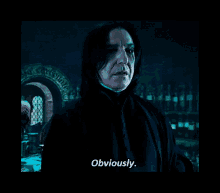
Here are some great understatement examples found in literature:
- “I have to have this operation. It isn’t very serious. I have this tiny little tumour on the brain” – Holden Caulfield in J.D. Salinger’s The Cather in the Rye
- “I think so,” said Professor McGonagall dryly, “we teachers are rather good at magic, you know.” – Professor McGonagall in J.K. Rowling’s Harry Potter and The Deathly Hallows
‘Tis a Wee Bit Easier Than You Thought
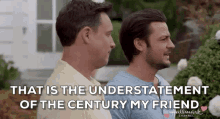
Although there are many ways and situations in which to use understatements, they all share one common characteristic and that is, to downplay or minimize the severity or seriousness of a certain situation. it might seem strange to minimize a situation’s severity, but understatements are used to call attention to the very quality it pretends to downplay, and in certain situations, it can offer some comedic relief.
Stick to your English language learning and you’ll be using understatements in conversations in no time. If you want to explore the vast and interesting world of language learning, check out AmazingTalker.

